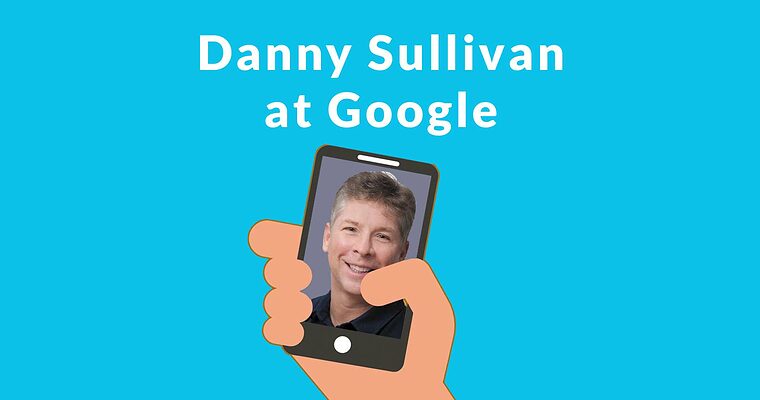
Sullivan Stands up for Publishers
Sullivan tweeted about Google’s ranking fair:
The search team at Google holds regular “Ranking Fairs,” which are like science fair for sharing your projects with others in search. I’m doing my first one today sharing some of the webmaster ecosystem concerns I hear. I share these in other ways, too. But this is more creative! pic.twitter.com/E52hVpB8OG
— Danny Sullivan (@dannysullivan) May 14, 2019
Sullivan states that he shares web publisher concerns with Google in many ways.— Danny Sullivan (@dannysullivan) May 14, 2019
Webmaster Ecosystem Concerns
Sullivan shared top publisher concerns that make publishers feel that Google is breaking the implicit terms of the relationship between Google and publishers.
Google’s success depends on publishers continuing to create quality content.
Publisher success mostly depends on Google rewarding quality content and an excellent user experience.
An online business can do well without Google. But Google cannot succeed without the publishers.
This is what the concept of the Google/Webmaster Ecosystem is all about.
Top Publisher Concerns Communicated to Google
Sullivan is officially the liaison for Google to web publishers. The definition of liaison is, “Communication or cooperation which facilitates a close working relationship between people or organizations.”
Facilitating cooperation from Google with publishers appears to be a major concern for Sullivan. His entire presentation was focused on getting Google to see how it’s behavior is viewed by publishers.
Voice Search
A top concern is Google’s voice search. Google has not communicated how voice search will benefit publishers.
No responsible business creates a service that will lose money. Google must have a path to monetization but it’s not sharing it with publishers.
That leads to speculation that Google will benefit from sales of IoT devices while publishers create content for diminishing returns on investment.
Publishers believe that Google intends to play the role of the hero for bringing free content to those who purchase it’s devices while publishers earn less and less and less from creating that content.
Web publishers are not stupid and they are aware that voice search does not have a clear path to monetization. This part of Sullivan’s presentation was designed to communicate that concern.
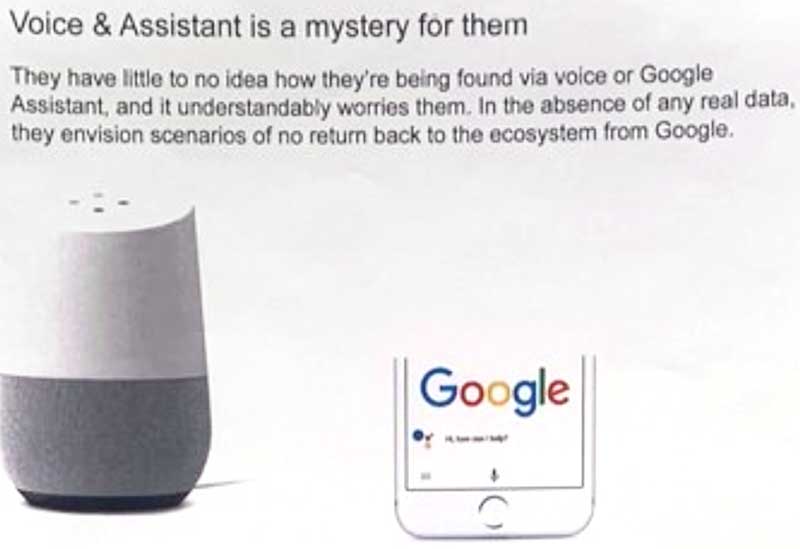
Webmaster Control
Publishers expressed their dissatisfaction with big brands displaying more than two pages in the search results.
Sullivan shared this tweet by an in-house SEO:
I’d love it if users could limit how many times one site could show up in results, or had the ability to blacklist a site.
I have no need for six Yelp links on a single categorical search, or half of my google image results to come from Pinterest.
— Joe Goldstein (@JoeAdamG) November 1, 2018
Failure to Link & Give Credit to Content AuthorI have no need for six Yelp links on a single categorical search, or half of my google image results to come from Pinterest.
— Joe Goldstein (@JoeAdamG) November 1, 2018
Of special concern is certain SERPs that display helpful information taken from a website but with no obvious way for the user to click through to the original site to learn more.
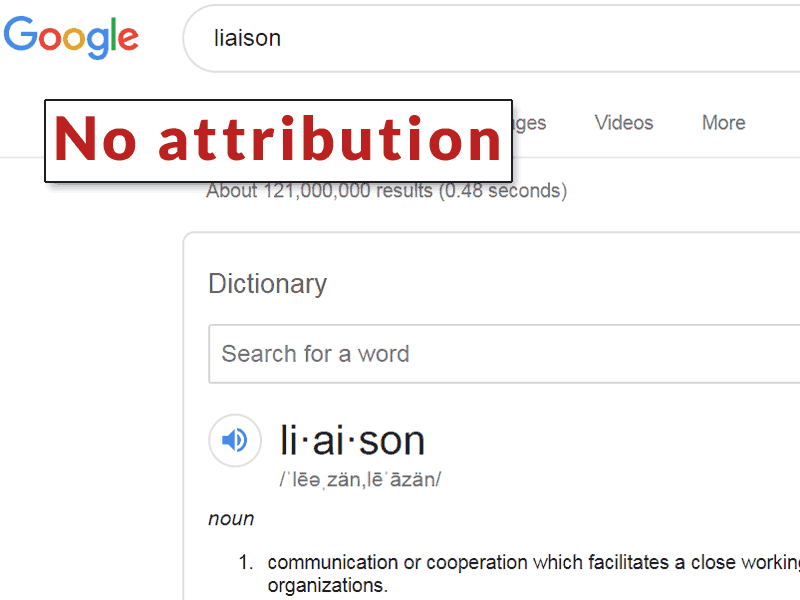
This is an example how Google will use content from a website but not provide a link back to the site where the information came from.
I’m certain that most publishers will agree that giving credit to the person who created the content is satisfactory, even if only a few people click through to their site from a position zero or rich results listing.
Failure to give attribution/credit to whoever published the content, while using the content, is unacceptable to many publishers. Google needs to come clean about how these kinds of results may benefit users in the future (because they are not benefiting from them in the present.)
Fear of Organic SERPs Disappearing
Sullivan labeled this as fear of disappearing. What he meant is the fear of having the organic results pushed down by ads, featured snippets, People Also Ask and other “helpful” Google features.
There are good reasons to show featured snippets that provide users with information from news sites and videos. But combined with ads and other features, web publishers become upset because there is no hope that a user will find their listing and click through.
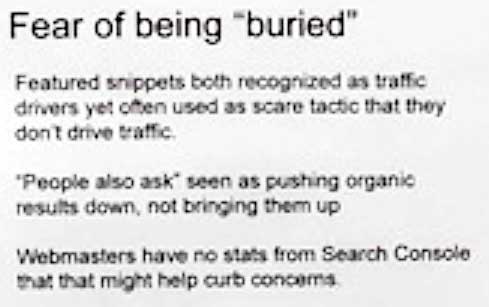
Sullivan calls this the fear of being buried. This is a reference to being pushed down in the SERPs so that a user would have to scroll to see the organic search results.
Positive Response from Publisher & SEO Community
The response from the publisher and SEO community was positive.
Many were grateful that Sullivan is at Google to communicate how web publishers may respond to Google’s new features and what seems as disregard from our point of view.
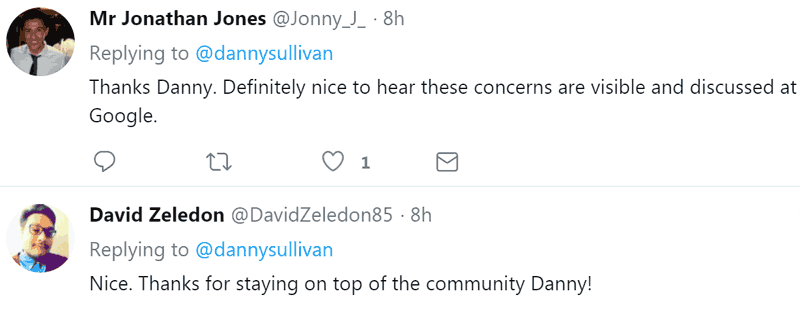
Source: https://www.searchenginejournal.com/
